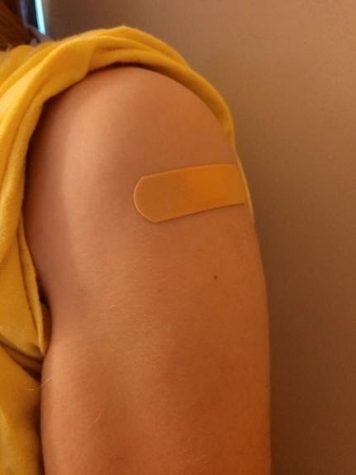Getting a Covid Vaccine: The Next Battle
From the start of the Covid-19 pandemic, the goal has been to create a safe and effective vaccine that is readily available to the public. Two vaccines were considered a success, the Moderna and Pfizer, both of which have proven reliable. The problem is no longer the vaccine itself, but rather transporting and administering it to the 330 million people living in the U.S. currently. From desperate health care workers, to overcrowded facilities, the process has proven to be difficult and time consuming for many.

The most problematic situation currently is most health care centers having their hands tied when it comes to administering vaccines. There are certain protocols patients need to meet to be considered a priority. If a patient doesn’t meet all the needed characteristics, they cannot receive the vaccine at that time. Due to these rules, thousands of vaccines have expired due to their short shelf life. According to Forbes, “Andrew Cuomo threatened a $1 million fine for healthcare providers that vaccinated someone outside of the current priority group. Earlier this month, he announced a $100,000 fine for hospitals that didn’t administer their vaccine doses within a week of receipt.” Due to these constant contradictions in instructions, the process has become extremely complicated. The system needs improvement starting with large administering sites outside of overcrowded hospitals. According to the Washington Post, “The federal government can expedite this process of repurposing stadiums, athletic fields and parking lots.” There are solutions to this problem but, the Trump administration had left states to figure out the process independently.
Now that vaccines are starting to make it to the average person, people can start gauging what the process looks like. Andrew Reice, PHS senior, got his first shot on Jan. 13 and his second on Feb. 10. He explained the process wasn’t difficult considering that he works in a long-term care facility. He said, “No the process wasn’t confusing, but if it wasn’t through my work, I imagine getting an appointment would’ve been hard, time consuming, and confusing.” Tina Hangey, an infectious disease director explained, “Once the Johnson and Johnson vaccine is approved, there will be more vaccines because it won’t have to be stored at negative temperatures.” This should speed up the process. She also mentions, “There has been a lack of communication from the federal government down to the local county health departments.” She agrees if the federal government had stepped in earlier, there would be better organization for this process. Only time will tell if there will be improvement under a new leader.
Jennifer Cranford, Grade 12. Her interests/hobbies include Executive Council, NHS, Irish dance, hiking, and kayaking. She will be attending Moravian...



